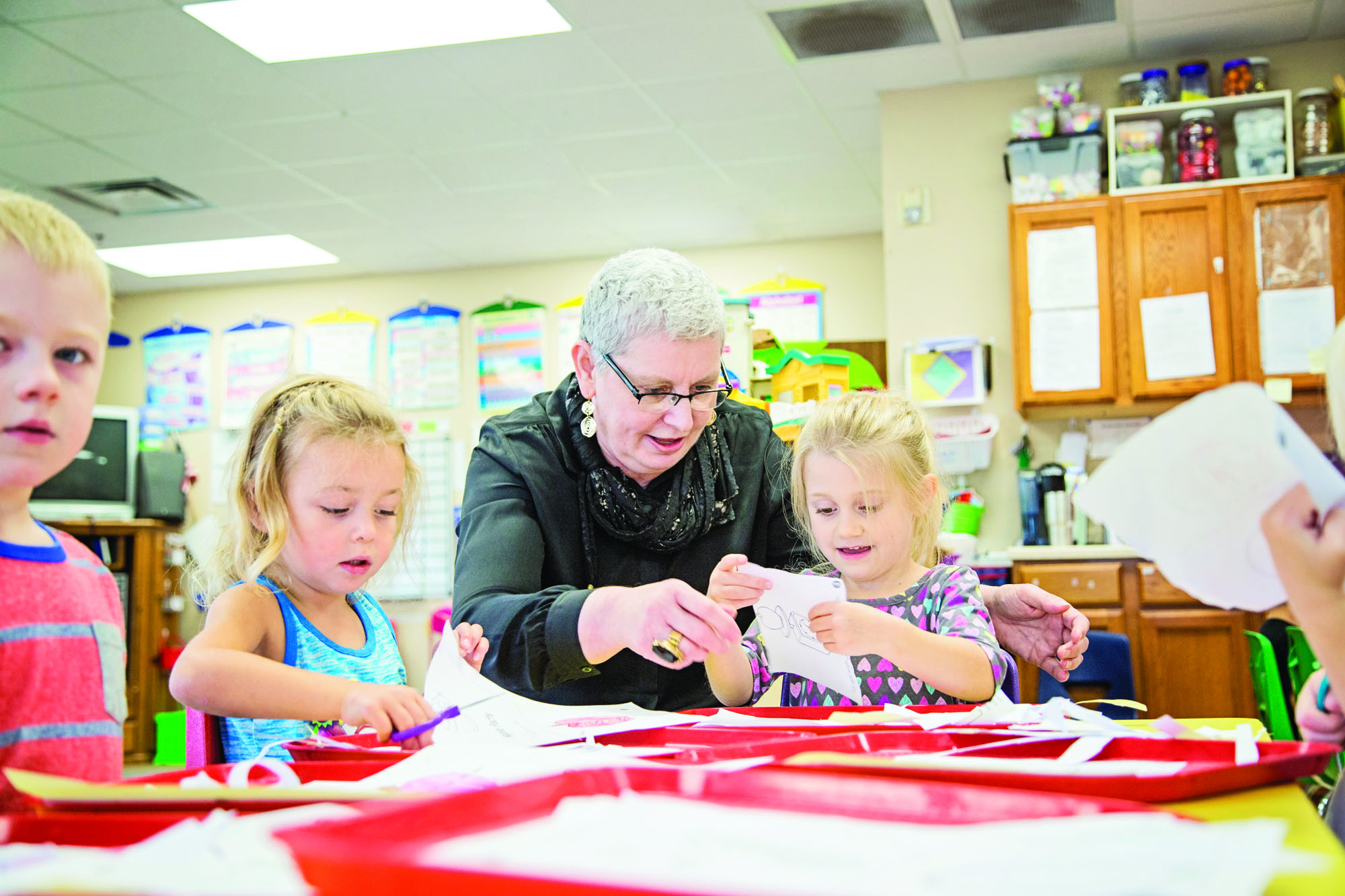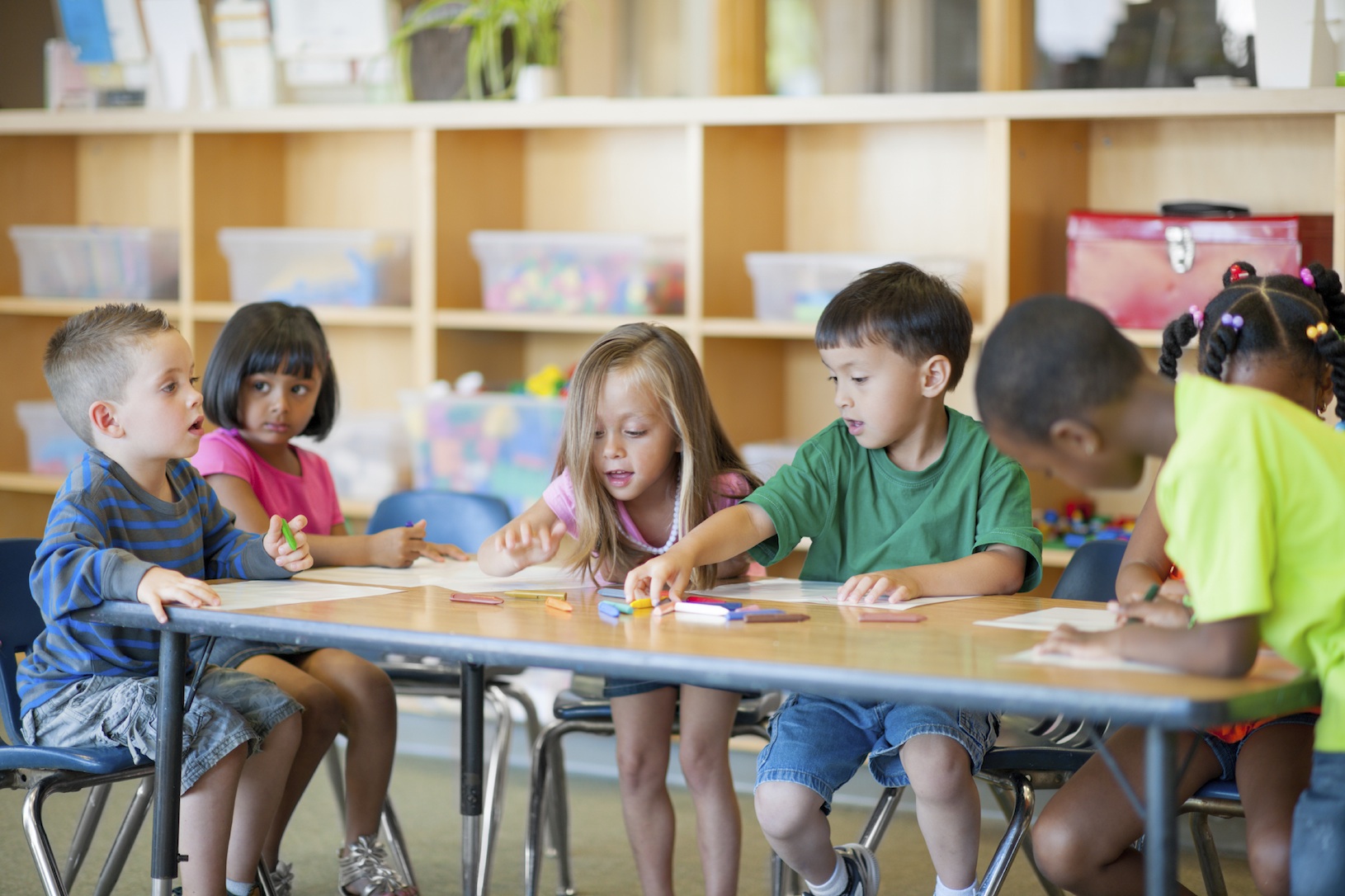Hands-on learning activities that define Private Grade School Peoria
Wiki Article
Everything About Grade College: Crucial Realities and Improving Experiences for Young Learners
Elementary school plays a pivotal role in forming young students' futures. It incorporates important academic topics and nurtures social skills through organized communications. Additionally, after-school activities give opportunities for creativity and synergy. Parental participation even more improves this structure, sustaining children in their scholastic trips. As these components link, they produce an extensive academic experience. What certain methods can teachers and moms and dads utilize to maximize this development?Understanding the Elementary School Educational Program
As trainees begin their quality school trip, they come across a curriculum created to develop fundamental abilities and knowledge across different topics. This educational program commonly includes core locations such as mathematics, language arts, scientific research, and social studies. Each topic is structured to cultivate important thinking, imagination, and analytical abilities, crucial for future scholastic success.Language arts concentrate on reading, writing, and communication abilities, promoting pupils' capacity to reveal themselves plainly. Mathematics presents standard concepts, consisting of enhancement, reduction, and later, reproduction and department, preparing for a lot more complicated problem-solving. Science motivates query and expedition, igniting inquisitiveness about the all-natural globe, while social studies instills an understanding of community and multiculturalism.
In addition to core subjects, the educational program usually includes arts and physical education and learning, providing a versatile academic experience that promotes both intellectual and physical advancement. As a result, elementary school acts as a vital platform for lifelong knowing.

The Framework of Quality School Education
While grade institution education and learning varies by region and institution, it usually follows an organized framework that promotes dynamic understanding. Typically, elementary school incorporates a variety of qualities, usually from kindergarten with 5th or 6th grade, depending upon the educational system. Each quality level represents particular developing turning points, with educational program created to build upon anticipation.Classes are typically organized right into core subjects, consisting of maths, language arts, scientific research, and social research studies, making sure that pupils obtain a versatile education. Guideline commonly integrates direct training with hands-on tasks, promoting engagement and important thinking.

Analysis methods vary yet usually include examinations, quizzes, and projects to evaluate trainee understanding. In addition, educators frequently work together to produce interdisciplinary devices, boosting the finding out experience. Overall, the structure of quality college education and learning aims to cultivate foundational skills, prepare pupils for future scholastic difficulties, and advertise a love for finding out that expands beyond the classroom.
Social Abilities Development in Early Learners
Grade college education and learning not only focuses on academic abilities yet likewise plays a considerable function in the development of social skills among very early learners. During these developmental years, youngsters participate in numerous activities that encourage communication, collaboration, and communication with peers. Team projects and participating knowing setups give possibilities for kids to exercise sharing, bargaining, and resolving problems.Structured playtime fosters necessary abilities like compassion and understanding, as youngsters find out to acknowledge and respond to the sensations of others. With led social communications, teachers help students develop critical paying attention and conversational abilities. As kids navigate friendships and team characteristics, they acquire self-confidence in their social capacities.
The Duty of After-school Activities
After-school activities play a substantial function in enhancing the instructional experience of grade institution trainees by supplying methods for individual growth past the classroom. These tasks enable pupils to discover passions and skills, promoting creative thinking and self-expression. Participation in sports, songs, art, and clubs cultivates teamwork, management abilities, and a sense of belonging.In addition, participating in such tasks advertises physical health and wellness and well-being, motivating pupils to keep an active way of living. Kindergarten. Extracurricular programs also offer as a system for students to build relationships and establish social skills, which are essential for their overall advancement
As trainees navigate their passions beyond academics, they gain beneficial experiences that contribute to their self-confidence and strength. Ultimately, these tasks play a crucial function fit well-shaped people, preparing them for future challenges both in and out of the classroom.
Supporting Knowing Through Parental Involvement
Adult participation considerably enhances the instructional trip of elementary school pupils, as it cultivates an encouraging environment that enhances discovering. Involved parents add to their kids's academic success by going to college occasions, helping with homework, and maintaining open communication with teachers. Kindergarten. This participation not just improves pupils' inspiration but additionally grows a sense of belonging and self-esteemStudy shows that children whose parents are proactively involved have a tendency to have greater qualities, better presence, and boosted habits in school. In addition, parental engagement urges the advancement of crucial life abilities, such as time monitoring and obligation.
Colleges can promote this participation by holding workshops, offering sources, and motivating regular comments. By producing partnerships in between teachers and parents, address quality institutions can ensure a go to this website complete technique to student advancement. Inevitably, adult involvement serves as a keystone for fostering a positive educational experience, profiting both pupils and the school neighborhood as a whole.
Regularly Asked Concerns
What Are the Typical Grade College Hours for Pupils?
Normal grade college hours for trainees normally vary from 8:00 AM to 3:00 PM, varying by district. Numerous colleges incorporate a lunch break and recess, making certain students have time to reenergize throughout the day.How Do Quality Schools Address Diverse Understanding Needs?
Quality schools attend to diverse finding out needs through set apart direction, customized lesson plans, and assistance solutions, making sure all trainees get suitable resources. Educators work together with experts to create comprehensive environments that foster individual growth and involvement.What Is the Duty of Modern Technology in Elementary School Education And Learning?
Modern technology in elementary school education and learning enhances learning through interactive tools, individualized finding out experiences, and access to huge resources. It promotes collaboration amongst instructors and pupils, preparing children for a technology-driven future while supporting diverse educational demands.How Can Moms And Dads Aid With Homework Properly?
Parents can assist with homework effectively by producing a structured environment, motivating independence, giving sources, and providing support without directly giving solutions. Communication with educators likewise boosts understanding of assumptions and promotes scholastic success.What Prevail Challenges Dealt With by Grade College Students?
Usual obstacles dealt with by grade college pupils consist of difficulty with time management, comprehending intricate principles, preserving focus during lessons, navigating social characteristics, and stabilizing academic responsibilities with after-school activities, every one of which can impact their general performance.As students begin their quality institution try this website trip, they encounter an educational program designed to build fundamental abilities and knowledge across numerous topics. Commonly, grade college incorporates a variety of grades, commonly from preschool with 6th or 5th quality, depending on the instructional system. Extracurricular activities play a considerable duty in boosting the educational experience of quality institution students by offering avenues for personal growth beyond the classroom. Parental involvement substantially boosts the educational journey of grade college trainees, as it cultivates a supportive setting that enhances understanding. By creating partnerships between moms and dads and teachers, grade institutions can guarantee a comprehensive approach to trainee growth.
Report this wiki page